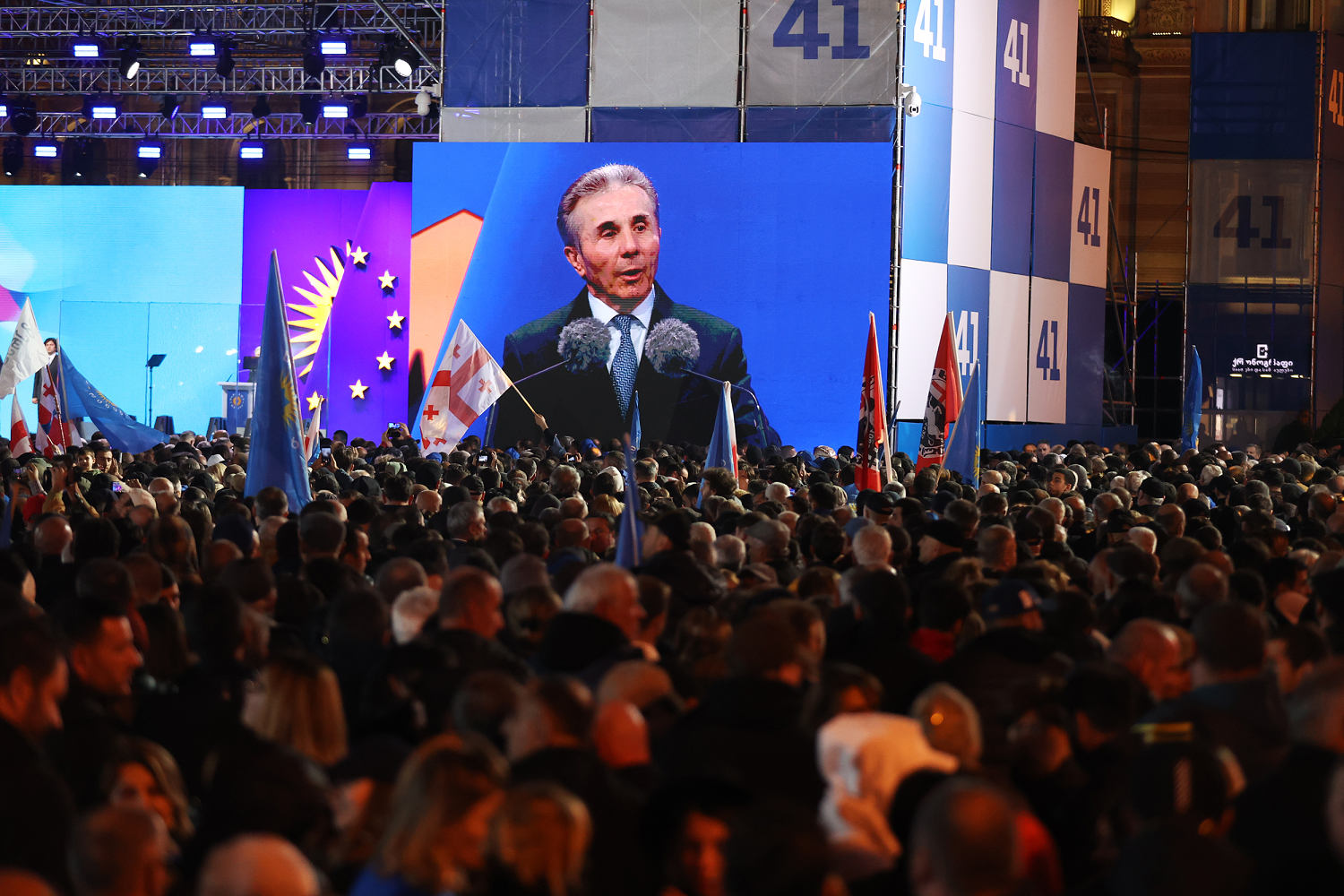Putin pressures Georgia, Moldova to turn away from the West

Even so, attempts to bring the three nations into the European Union had stalled in the years prior to Russia’s full-scale invasion of Ukraine.
The beginning of that war “really created this sense of urgency and also really led the E.U. to extend the membership prospect to these three new countries in the East: Ukraine, Georgia and Moldova,” said Marta Mucznik, a senior E.U. analyst at international peace-advocacy nonprofit Crisis Group.
Since then, the E.U. has moved to accelerate the membership processes of all three countries.
Ukraine began talks this summer, while Brussels granted Georgia candidate status last year but froze that process in May after leaders in Tbilisi cracked down on protests against a bill seen as authoritarian and Russian-inspired by critics. Moldova, meanwhile, voted narrowly to join the bloc on Sunday.
The pro-E.U. camp won 50.46% of the vote despite police there saying that pro-Russian fugitive businessman Ilan Shor had channeled $39 million to voters in September and October.
Moldovan President Maia Sandu, who topped the first round of presidential voting the same day, posted on X that “without the buying of votes, the outcome today would have been different. We would have had a convincing victory in the presidential election and the referendum!”
The Kremlin saw things differently. “You could see with a naked eye the changes in the dynamics of the vote count during the referendum that were hard to explain,” Peskov said. “Moldova’s leadership does not bother to explain these anomalies.”
Moldova has moved to ban Russian media outlets operating in the country, and the million or so citizens working and living in the E.U. have also had a crucial influence, said Grabbe, from the Bruegel think tank. But there have been fewer moves to counter a more subtle Russian influence in Georgia, she added.





